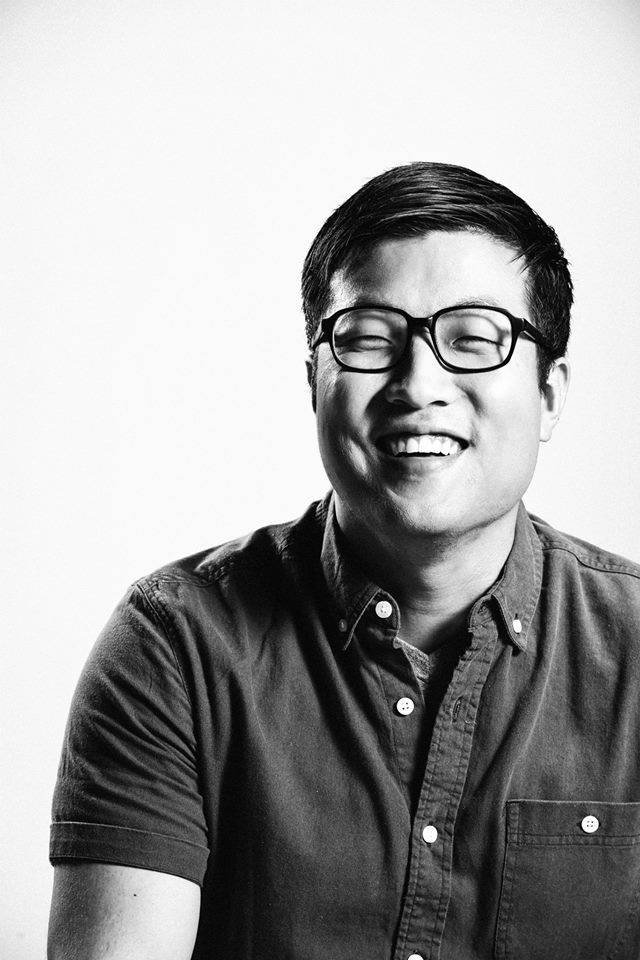- California Assembly OKs highest minimum wage in nation
- S. Korea unveils first graphic cigarette warnings
- US joins with South Korea, Japan in bid to deter North Korea
- LPGA golfer Chun In-gee finally back in action
- S. Korea won’t be top seed in final World Cup qualification round
- US men’s soccer misses 2nd straight Olympics
- US back on track in qualifying with 4-0 win over Guatemala
- High-intensity workout injuries spawn cottage industry
- CDC expands range of Zika mosquitoes into parts of Northeast
- Who knew? ‘The Walking Dead’ is helping families connect
Sam Ock proves his music can cross language barriers

(Sam Ock Facebook page)
By Tae Hong
Sam Ock could not believe he was about to perform on one of South Korea’s biggest music programs as he rehearsed for “Yoo Hee-yeol’s Sketchbook” in January.
As a second-generation Korean American artist with imperfect Korean-speaking abilities, he hadn’t thought audiences there would find his music appealing.
“The fact that Yoo Hee-yeol said that he is a fan of my music is something that is really amazing to me,” he said. “It amazes me that Korean people like my music.”
Ock, 24, is a young musician whose latest album, “Grey,” was released early this year. His rap vocals and soulful music has squarely put him on the map, from high praises by Korean music streaming sites Melon and Bugs to the top spot on iTunes’ Hip Hop Albums in Japan last year with album “Stages.”
That Ock does what he does today is, in many ways, a natural progression.
His mother, who studied vocal performance at Seoul National University in the 1970s, was an opera singer. He grew up listening to his mother sing and started playing the piano when he was five years old.
At church, the Ocks would perform four-part hymns during Sunday service.
In high school, a friend introduced him to music-making programs. Ock discovered he liked making beats. The hobby eventually led to recording equipment and song composition, and continued into college at the University of Maryland in Baltimore, where he majored in musicology. And it drove him to co-found Good Fruit Co., with two other members of AMP, a Christian hip-hop group.
Good Fruit, which started in 2010, is a record label as of 2015. Ock said plans for a new AMP project, as well as a solo one for AMP member J. Han, are underway.
An unexpected level of support greeted Ock in his recent visit to South Korea, where he held his first solo concert. The venue was packed.
That he’s a Korean American musician seems to have resonated with the younger generation in Korea, he said.
“They feel like they can take more ownership of my music. Even though it’s in English, the fact that I culturally come from Korea resonates with them,” Ock said.
More and More Korean American artists — John Park, Eric Nam, Eddy Kim — have taken center stage in the mainstream K-pop scene in recent years. But Ock is still not ready to take the next step there. He’s open to it, sure. But before he releases music in Korean, it’s back to Korean language lessons.
“The thing that’s been holding me back from making music in Korean is primarily because I don’t feel like I’m being my creative best when I’m putting pressure on myself to make a song in Korean when I haven’t gotten to the level where I’m comfortable with expressing myself that way,” he said. “I wouldn’t be authentically expressing myself.”
“Grey” is an example of Ock’s authentic expression — he describes the album as an exploration of the meeting of a black reality and a white truth of the heart. For him, he said, that whiteness is the truth of Christianity.
His faith is most definitely a basis of his music, but being labelled a “Christian” artist doesn’t hold much importance to Ock.
“I think in the process of making authentic art, who you are is going to bleed into your music,” he said. “So that is who I am. My faith is a very big part of my life. … It’s about the most compelling art I can make. I personally wouldn’t categorize myself in anything, because I don’t categorize myself at all. I just let the person who hears my music categorize me.”















